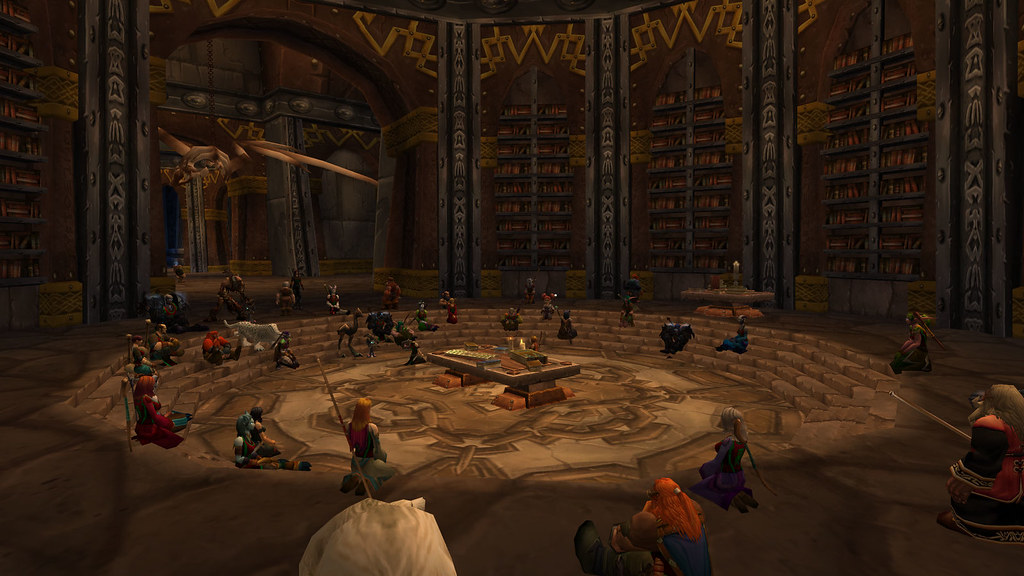Session two was a very popular one, on a subject I've blogged about a bit before. Dave Pattern and Andy Walsh were facilitating this session, and they started off the discussion by talking about a project that they have been working on called Lemon Tree. Their aim is to gamify the library experience to encourage low or non users to get involved and learn how to use the library in a fun and challenging way.
One aspect of the game that they mentioned were a points system, where users gained points for all library activities, e.g. for taking out a book, and you get more
points for taking out books from outside of your subject. The prize is
simply to be good at it, and badges show who
is "expert" in particular areas. Another side of the game is that the OPAC levels up as you do, so you get more features/functions as you learn new skills. People learn better in games, when they are "learning by stealth". They also learn better when it is a challenge. Someone mentioned the protein folding problem: once an unsolved scientific problem was turned into a game, it was solved in ten days.
Libraries have the same kind of repetitive
behaviours that are involves in games. Turning this into a challenge has
been around for years, for example in summer book challenges. Someone mentioned the pretty incredible statistic that the total
time people have spent playing World of Warcraft is 6 million years.
The man-hours spent playing games are phenomenal, and almost entirely untapped.
Another library (I forget who said this sorry!) has introduced xbox, PS3 and wii, and it has been so popular that
they would recommend it to any other library. This has the benefit of getting kids into the library who
wouldn't normally enter the building. The wii and xbox kinect have also been used as
therapy, e.g. rehabilitation, and to help with dyslexia by associating
words with movement.
Some of the fears are that games encourage
violence, and games seem childish. Arguments against these: the average age of gamer
is 34! Even in shooters, there is much educational potential. Creating
maps and building is a creative and educational use of a game. Halo maps
made of buildings have been used to test fire drills! (Our evacuation plan worka
for fires and zombie apocalypse...). Other games such as Minecraft are all about creating and building.
Other ways to bring games into the library:
- offer hacker groups etc. space in your building, and build up a
relationship with this user group. They could teach librarians things!
- take ideas from IGFEST (intelligent
games festival). This is held in Bristol, and the games are played throughout the city including things like Augmented
Reality zombie shooter games using an iPhone app, and QR code scavenger hunts.
- Death
in the library, treasure hunt with clues in books, learn about
catalogue/classification through a game.
- Games
can be a great way to teach silver surfers how computers work. For first
time computer users, solitaire is great for learning
mouse control.
- Games don't have to be tech based - board games, cards etc.
However developing games need thought, they can't be rushed or underestimated. Trying to choose a game to suit everyone will probably end up suiting
no one. Instead of librarians choosing the games, why not let the user group buy the games - give them the budget and let
them choose what they want. Or in an ideal world you could let users design the games.
If you are planning to bring games into the library, you will need to develop a
thick skin as many will object that this is not what libraries do.
("Think of the children!" "Think of the Daily Mail!") Maybe good way to test would be to piggyback onto ALA's annual gaming day - 12th November, could be a good test for a wider programme.
And finally...my
favourite suggestion of the session: Offer users a chance to clear
their fines by challenging their librarian to game of Dance Dance Revolution!
Things to look at:




